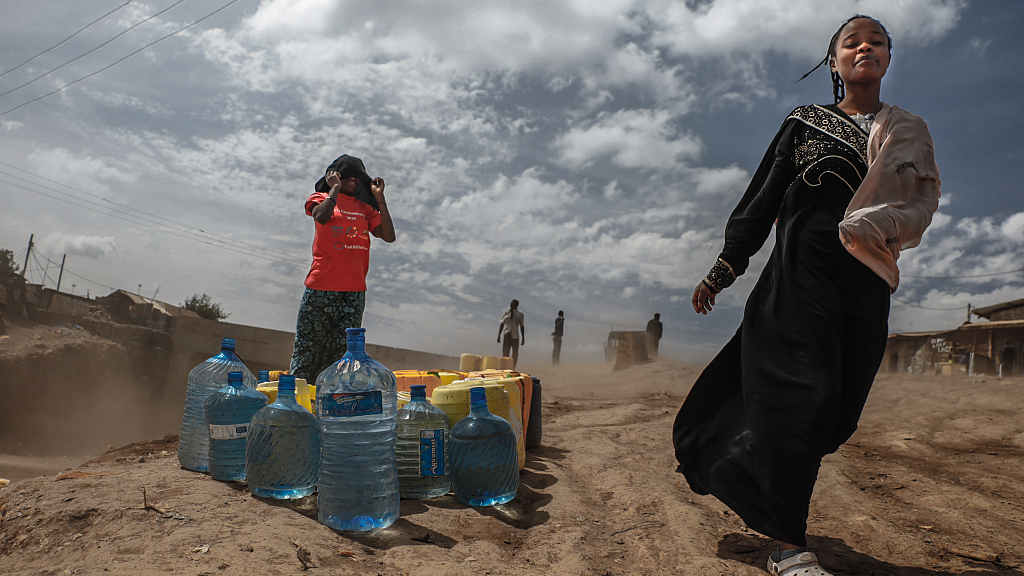01:53

As the Horn of Africa struggles with severe droughts following three consecutive poor rainy seasons, the United Nations World Food Program (WFP) warns that the ongoing weather condition is compounding impacts of multiple shocks in the region.
Noting that an estimated 13 million people are faced with acute food insecurity and severe water shortages due to drought across the eastern Horn of Africa, the WFP said the drought is compounding the impacts of multiple shocks including conflict, flash flooding and desert locust infestations, which will eventually complicate food insecurity.
The frequent and often overlapping presence of shocks makes it harder for families to recover and build resilience, the WFP said in its situation update on Wednesday.
Michael Dunford, the WFP's Eastern Africa regional director, explained in an interview with China Central Television in Nairobi how the drought has impacted the region.
"We're experiencing a severe drought in eastern Africa, across the Horn of Africa. Three countries particularly, Ethiopia, Kenya and Somalia are impacted. We recently heard that Djibouti is now declared a state of emergency. We estimate 13 million people are affected by this drought, and we're particularly concerned about the most vulnerable, the children, the women. We're seeing that the crops have failed, livestock are dying, and people are having to leave their homes because they have lost everything. They've lost their livelihoods and now coming to the cities looking for support," said Dunford.
Three consecutive seasons of low rainfall have led to sharp declines in grain yields and abnormally high livestock deaths. The acute shortage of water and meadows are driving people to leave their homes and intensifying conflicts between communities.
The WFP earlier this month launched its regional drought response plan for the Horn of Africa, calling for 37.15 billion shillings (about $327 million) to tackle the severe drought in the region.
Dunford said the funds will be used to respond to the immediate needs of about 4.5 million people over the next six months and help communities become more resilient to extreme climate shocks.
The situation requires immediate humanitarian action and consistent support to build the resilience of communities for the future, Dunford said in a statement issued in Nairobi.
(Cover image via CFP.)
(If you want to contribute and have specific expertise, please contact us at nature@cgtn.com.)

